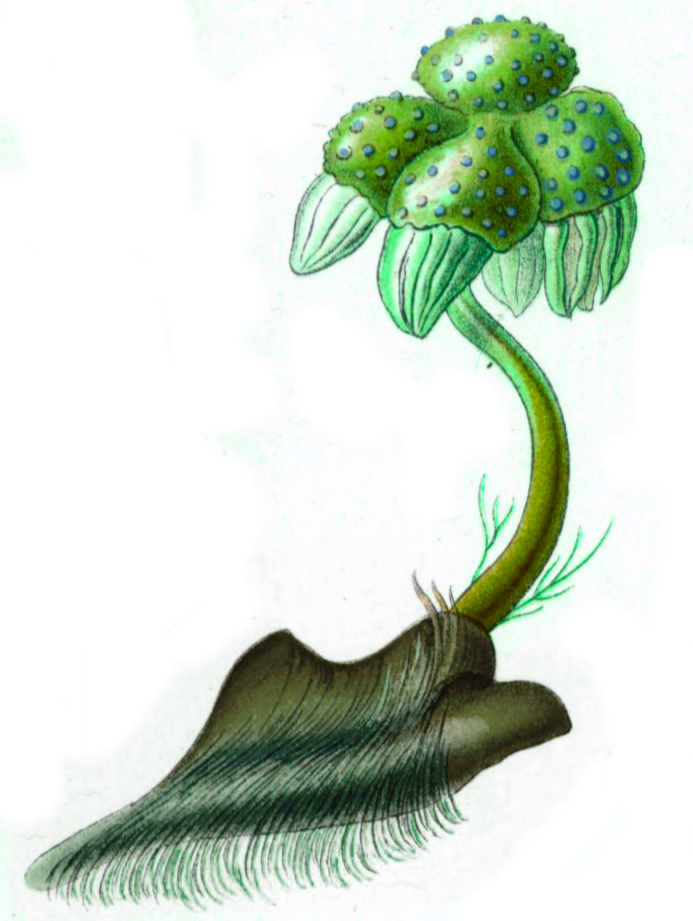 Lacewort
Lacewort
That’s a nasty wound, thought Harricka. The kid was lucky they brought him here.
She carefully cleaned the wound and reached to her backpack, sighing briefly as she realized she was down to her last pouch of lacewort. She’d have to send the kids out to collect more as soon as the rainy season ended.
Opening the pouch, she carefully extracted the mossy, filamentous contents and packed them into the wound. The sponge-like plant’s tendrils immediately began twitching, twining themselves against the neighboring skin and drawing it together. Within seconds they’d knitted it into a neat line; it was doubtful the kid would even have a scar when it healed fully. The astringency of the plant itself would prevent all but the most pernicious diseases.
Harricka reached back into her pack for a bandage, though the absorbent body of the wort made it almost unnecessary.
Lacewort or bindwort is a non-vascular liverwort, with a mosslike structure that is yellow-green in color but flecked with blue-tinged cystules. Dark and dun threadlike fillaments hang from the dorsal surface. Generally found in wet tropical environments, lacewort requires acidic conditions, shade, heat, and high humidity to thrive.
Lacewort is most notable for its medicinal uses: its acidic body inhibits infection and its mosslike structure is highly absorbent, making it an excellent dressing for wounds. More notably, the threadlike filaments quickly bind and draw together surrounding skin, helping to close wounds and prevent scarring. Lacewort must be properly dried and treated after harvesting to garner these properties, a complex process which requires a strong knowledge of the mechanisms involved. A skilled botanist can prepare much more potent poultices of lacewort than a novice.
Mechanical Notes
Lacewort is equivalent to a potion of healing: one standard pouch of lacewort can be applied to a wounded creature as an action, healing the recipient for 2d4 + 2 points of damage. More powerful preparations are equivalent to more powerful healing potions.
↞ Previous: Kolibri Next: Ochala ↠